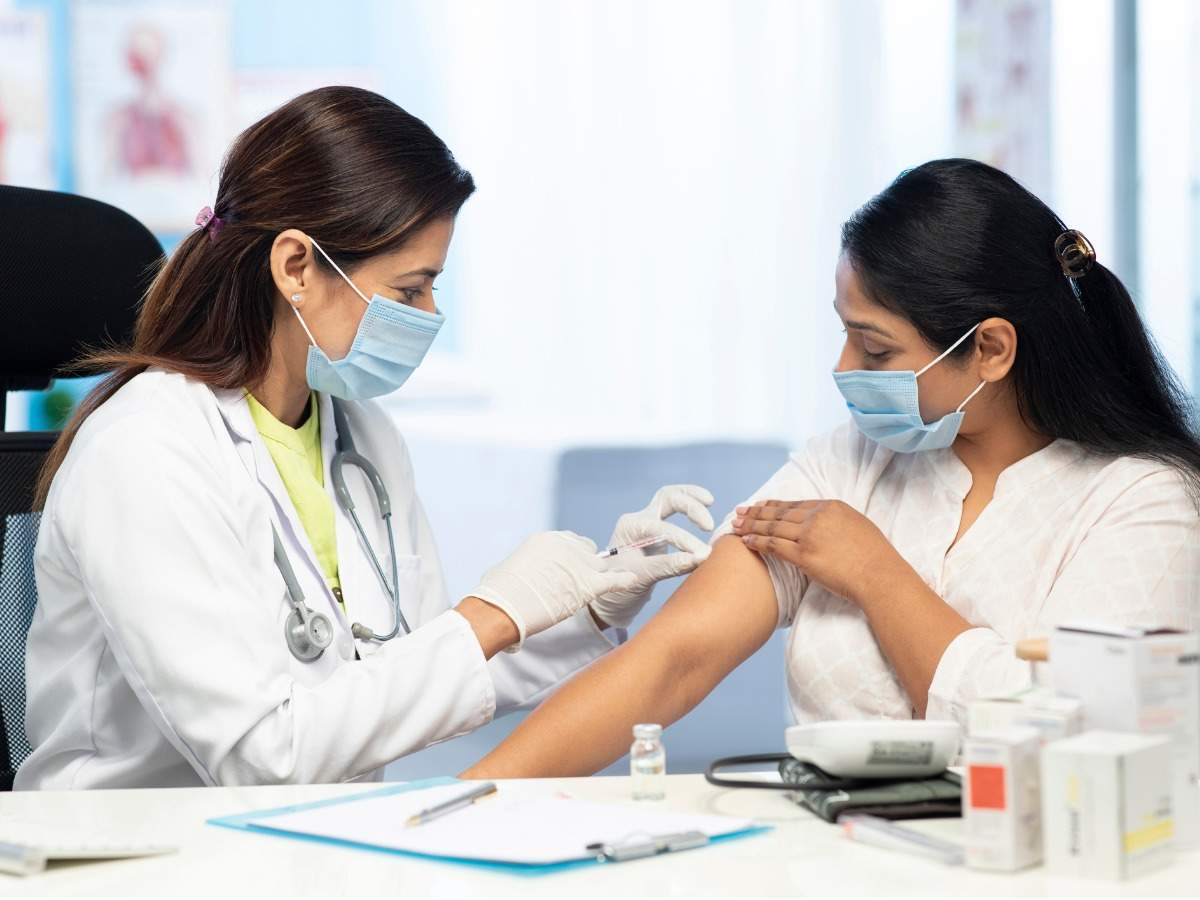
Vaccination drives have been ramped up across the country and now, there are more vaccines available for use. With the latest approval being granted to Moderna Inc’s, novel mRNA vaccine, India now has 4 vaccines in its ambit.
While we await more news regarding the availability of Moderna’s and Sputnik V vaccines, the wide-scale availability will help cover up shortages and reach a larger population in the stipulated time. Even so, the availability of different vaccines now will offer people a wider choice of vaccines during these trying times.
ALSO READ: Will we need COVID-19 vaccine booster shots in the future?
Each vaccine we have, passes the WHO standard of approval, has tolerable efficacy rates and mitigates dangers. Yet, some may be more reliable than others and carry benefits too. So, when you have the choice- what should you pick?
If you are yet to get vaccinated, here’s a comparison of the different vaccines we have…
readmore
02/8How are the vaccines made?
The four vaccines which have received emergency use authorisation (EUA) in India are all made using different platforms.
While the Covishield jab (Oxford-Astrazeneca) vaccine is a viral vector vaccine that uses an adenovirus found in Chimpanzees, ChAD0x1, to deliver spike proteins and mount a tolerable immune response in response to a live virus. Covaxin, developed and manufactured in India uses a similar inactive viral strain. Both of them are made using traditional vaccine-build platforms.
Sputnik V uses a weakened strain of the common cold virus, adenovirus, which is then used to spike a tolerable immune response.
ALSO READ: What makes mRNA vaccines better than traditional vaccines?
Moderna’s COVID vaccine, which was one of the first ones to be approved for use globally, is made using an innovative mRNA technology (messenger RNA) that instructs the cells to build a harmless fragment of the spike protein, similar to the actual coronavirus and prompt an immune response. mRNA vaccines are considered a new-age technology, with its set of benefits and considered to be more successful. However, the use of traditional technology vaccine platforms makes for a safer choice at the same time, which is more reliable and hence, has a lot of takers.
It should be noted that in the coming weeks, India might also have access to another COVID-19 vaccine, built using a completely different platform, plasma DNA, which will be the first-of-its-kind vaccine in the world. The DNA COVID vaccine, developed by Indian pharma major Zydus Cadila, is subject to approval and use.
readmore
03/8Efficacy rate
The efficacy rate determines the workability of a given COVID-19 vaccine under clinical settings and showcases how potent it could be, once approved. Now, all four vaccines that we have passed the WHO nod for approval, which state that a vaccine should be at least 50% efficacious against transmission.
However, from what has been seen, clinical trials and real-time usage have suggested that all the vaccines, while effective against the SARS-COV-2 strain, have different efficacy rates. The higher the efficacy rate may promise a coronavirus vaccine more favorability and usage as well. In the current scenario we have, the four vaccines offer different efficacy rates.
Covishield vaccine, which was the first to be approved for use in India has a proven efficacy rate of 70%, which can be scaled up to 91% when both doses are administered 8-12 weeks apart. The vaccine also mounts a higher antibody response and prevents severe outcomes. Covaxin, which recently completed the third stage of trials shows an efficacy rate of 78%, additionally providing 100% protection against severity and mortality.
The third COVID-19 vaccine that we have, Sputnik V, according to the RDIF demonstrates an efficacy rate of 78.6% to 83.7%, as per trials and case studies conducted.
Of all, Moderna’s hopeful COVID-19 shot, mRNA-1273, has been found to be the most efficacious of all. While the company wrapped up trials in December, it has been found that the vaccine has an efficacy rate of over 91%, with immunity peaking after administering two doses. The company is also in the middle of conducting trials on kids below the age of 16 and interim data has proven that the vaccine is just as effective when used pediatrically.
readmore
04/8Workability against the Delta variant
When we talk of a vaccine’s efficacy and effectiveness, in the current timelines, it becomes all the more crucial to study how effective a vaccine would be against the mutant strains of SARS-COV-2 which are fast spreading and have been categorized as Variants of Concern (VoCs). As we have seen, there was a rise in cases amongst those who had been vaccinated earlier- meaning that the vaccines we have, may not be as effective as proven.
Although the vaccines are subject to many levels of evaluation, and may even need upgrades as we move forward, some of the vaccines have proven to be less effective and efficacious against the Delta variant. Covishield’s efficacy rate has been seen to drop to 65% with the Delta variant, whereas recent studies have proved a similar drop in the workability of Covaxin as well (61%). With Sputnik V, too, there is a fall, but according to experts, the fall could be insignificant.
As for Moderna’s make, recent evaluations have proved that the vaccine is well able to neutralize antibodies against such VoCs, and offers a good level of protection as well, at a lower efficacy rate. Therefore, the ability of the mRNA vaccine to combat Delta and other variants of COVID-19 may offer it an edge.
However, it should be remembered that all the vaccines available offer good protective odds of reducing symptomatic infections, hospitalization and mortality against the Delta variant.
readmore
05/8Pricing
While COVID-19 vaccines have been made available free of cost at government institutions and hospitals, strategic deals have been signed, pricing of the vaccines is also an important factor under consideration.
Currently, Covishield, manufactured by Serum Institute of India (SII) is the cheapest vaccine under offer. Covaxin, manufactured by Bharat Biotech currently costs Rs. 1200, whereas Sputnik V is said to be priced around Rs. 950-1000.
Moderna’s mRNA vaccine, which has been granted nods for import, may be made available soon. However, while the pricing of the same hasn’t been publicly announced, it is expected that at private hospitals and centres, Moderna’s shot will be priced considerably higher than other vaccines. More details are awaited on the same.
readmore
06/8Side-effects
Side-effects related to any COVID-19 vaccine are said to be reactogenic and resolve in a matter of 2-3 days. However, as has been seen, side-effects can also differ as per intensity, from vaccine to vaccine and can be a factor for consideration.
For example, as per experts, while Covishield prompts a higher antibody response with the first dose, the intensity of side-effects could be slightly higher than others. Covaxin on the other hand has been seen to lead to fewer side-effects, similar to that with Sputnik V.
The mild, reactogenic side-effects with most vaccines tend to be similar in nature, causing a low-grade fever, chills, fatigue, malaise, body pain, headache, or in some cases, nausea.
Moderna’s COVID-19 vaccine shot, too, offers reactogenic side-effects, which could be comparable to that of Covishield. It could also lead to unusual side-effects, such as the infamous ‘COVID arm’.
As for adverse reactions, the incidental cases have been on the rarer side. Having mentioned that, preliminary research suggests that Covishield and Moderna have a higher risk of adverse, or serious reactions, including blood clots and heart inflammation (myocarditis).
readmore
07/8Which offers the highest level of immunity and protection?
The immunity granted by a COVID-19 vaccine is determined by the level of lasting antibodies it mounts. Currently, we do not have much clarity available on how long individual vaccines grant protection and immunity. However, recent studies have indicated that mRNA vaccines, such as the one offered by Moderna may be capable of offering longer immunity, which may remain in place for years to come, and hence may not even require a booster shot. The results are based on smaller studies and subject to more research. Nonetheless, it is nothing short of a ray of hope right now.
Researchers at the Oxford University, who also helmed the development of the Covishield vaccine have also recently highlighted how the administration of a booster shot, given 10 months from the first shot may help significantly boost antibody count and work to provide lasting immunity.
readmore
08/8The bottom line
Wider availability will help people in India, as well as abroad make a more informed choice. The factors before choosing a vaccine can be dependent on a person’s age, pre-conditions and financial prospects. However, the takeaway message still remains to get the first vaccine available to you, and get inoculated as and when you can.
Delaying vaccination right now can be a risky choice to make while we remain worried about the emergence of a potentially scary third wave. The faster people get vaccinated, the better are the odds of protection and minimizing the dangers of future mutations and variants of concerns.
However, if you have concerning health conditions, or are immunocompromised, experts do advise people to take a suitable decision, weighing the pros and cons, talking to a doctor and choosing a vaccine appropriately, since they may need a vaccine which is more efficient and provides longer-lasting immunity. The same goes for someone who may be prone to allergies, or risks from COVID-19 vaccines.
readmore
read the full story about Which COVID-19 vaccine is better for you?
#theheadlines #breakingnews #headlinenews #newstoday #latestnews #aajtak #ndtv #timesofindia #indiannews


Leave a Reply